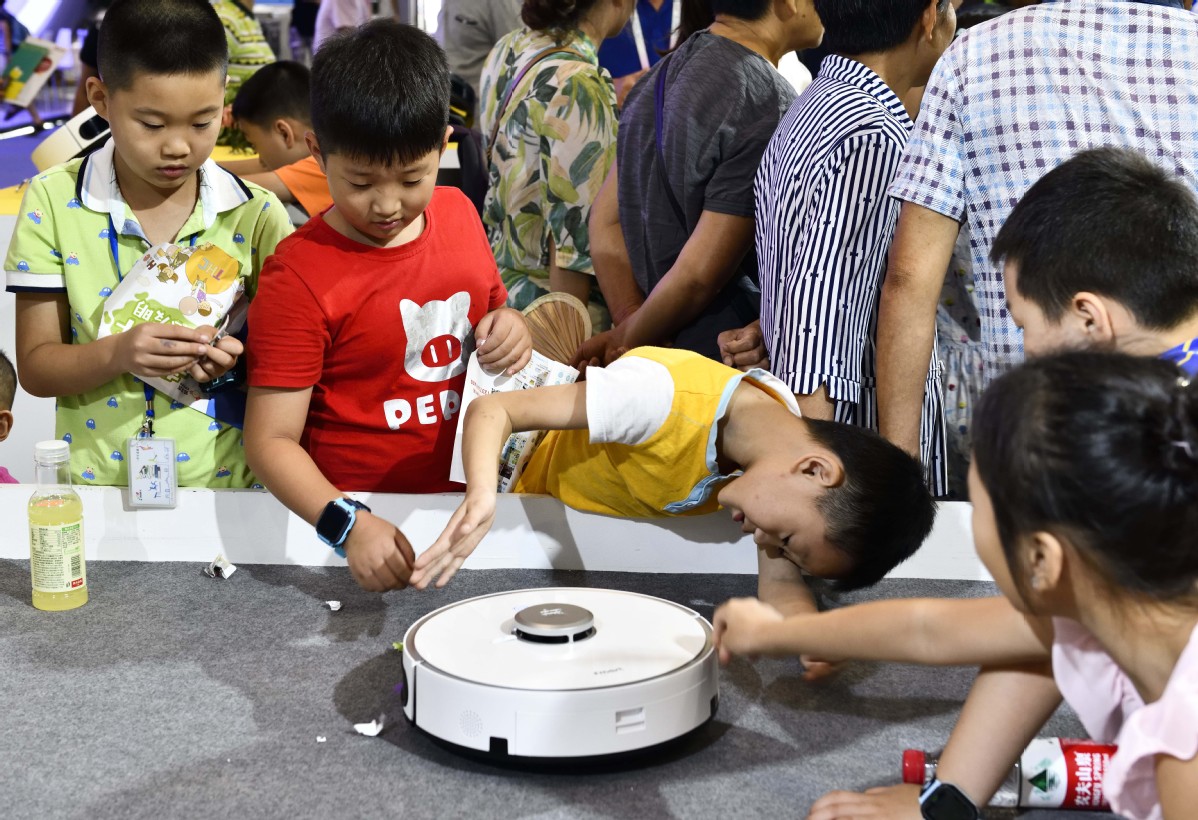Intelligent robots to give vacuum cleaning sector a makeover


The competition in China's robot vacuum cleaning sector is expected to intensify as high-tech companies are strengthening technological innovation and upgrading software to make the products more intelligent, owing to the rising demand from Chinese consumers for high-end products.
iRobot Corp, the US-based robotic technology solutions provider, has recently unveiled iRobot Genius home intelligence-a powerful new robot platform that unlocks an expansive range of digital features and experiences for the company's line of Wi-Fi connected products, including the Roomba robot vacuum and Braava jet robot mop.
It supports cleaning based on the user's habits and personal preferences, enabling a smarter and more efficient customer experience, and provides greater insight into the robot's cleaning performance.
"With an increased strategic emphasis on software and digital experiences, iRobot continues to differentiate itself by developing smart technologies that free customers of daily cleaning while they live and work at home," said Colin Angle, chairman and CEO of iRobot.
Angle added the company's robot intelligence is personalized and responsive to the user's habits and preferences, giving them greater control over when, where and how their robots clean.
Statistics from market consultancy All View Cloud showed the sales of robot vacuum cleaners reached 5.59 million units from January to November in 2019, an increase of 1.9 percent year-on-year. In the same period, the related revenue rose by 2 percent on a yearly basis.
Angle said the revenue of the company amounted to $1.2 billion last year across the globe, with the high-end products accounting for 60 percent of its total revenue in the first quarter of this year. It has sold more than 30 million household robotic products to date.
iRobot took up a 52 percent market share worldwide in the category of robot vacuum cleaners last year, with its compound annual growth rate reaching 14.8 percent from 2014 to 2019.
It is eyeing huge growth potential from China's high-end robotic vacuum cleaner market. Angle expressed confidence on the development prospects in the Chinese market, underlining the company is mainly targeting high-end shoppers.
According to Angle, the epidemic had a limited impact on the consumption behavior and decisions of those shoppers. He believes the whole robot vacuum cleaner industry will maintain vigorous growth over the next few years.
He also noted the company concentrates on the premium segment, which is also its advantage in China, and this strategy has brought about very good business growth.
Market research company Euromonitor International said the total revenue from robot vacuum cleaner sales in China rose from 2.2 billion yuan ($324.7 million) in 2014 to 8 billion yuan in 2019, at an annual compound growth rate of 51 percent.
"The smart home industry is now developing by leaps and bounds, thanks to advances in the internet of things, big data and other technologies," said Zhang Yanbin, an independent researcher in the home appliances sector. "With people's increasing requirement for a high-quality life, the artificial intelligence-enabled smart home sector has a promising future."
Chinese tech firms such as Midea Group and Ecovacs Robotics are also eyeing the high-end robotic vacuum cleaner market and beefing up efforts in the research and development of cutting-edge intelligent navigation technology.
Ma Jianliang, director of Midea's artificial intelligence research institute, said the company has set up a research platform for intelligent navigation technology, which can be applied to service robots in the future.
In April, Midea's first LiDAR-enabled floor cleaning robot went on sale in the domestic market. LiDAR uses laser light to measure distances and map surroundings, and is commonly used in vehicles with autonomous driving capabilities.
Ecovacs Robotics, China's largest in-home robotic products manufacturer, rolled out AI-powered T8 series of robots by leveraging advanced technologies for object detection.
It uses 3D structured light technology to detect, avoid and clean around furniture and objects like shoes, cords and small toys, creating a fast and accurate 3D image of space and objects. It is also equipped with TrueMapping precision navigation, which scans, maps and plans an efficient cleaning path faster and more precisely, to prevent missed or repeated areas.
"Home service robots are designed to help people improve their daily lives and maintain a healthy home environment. During the prevention and control of the epidemic, some consumers have enhanced their health consciousness, which will boost the demand for smart household appliances," said Qian Cheng, general manager of home service robots at Ecovacs.
Qian said the epidemic will speed up the reshuffle in the service robots industry, adding the company will accelerate efforts to expand its online sales channel and collaborate with e-commerce platforms.
Statistics from consultancy China Market Monitor showed the online sales of Ecovacs' robot vacuum cleaners increased by 32.3 percent on a yearly basis in the first half of this year.




































